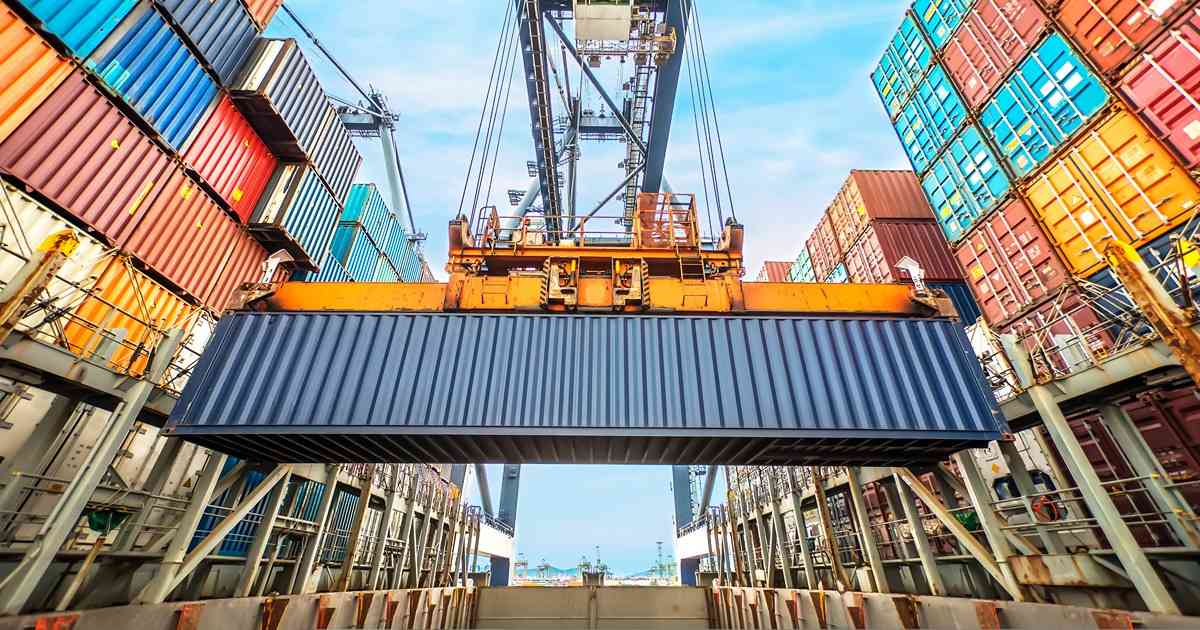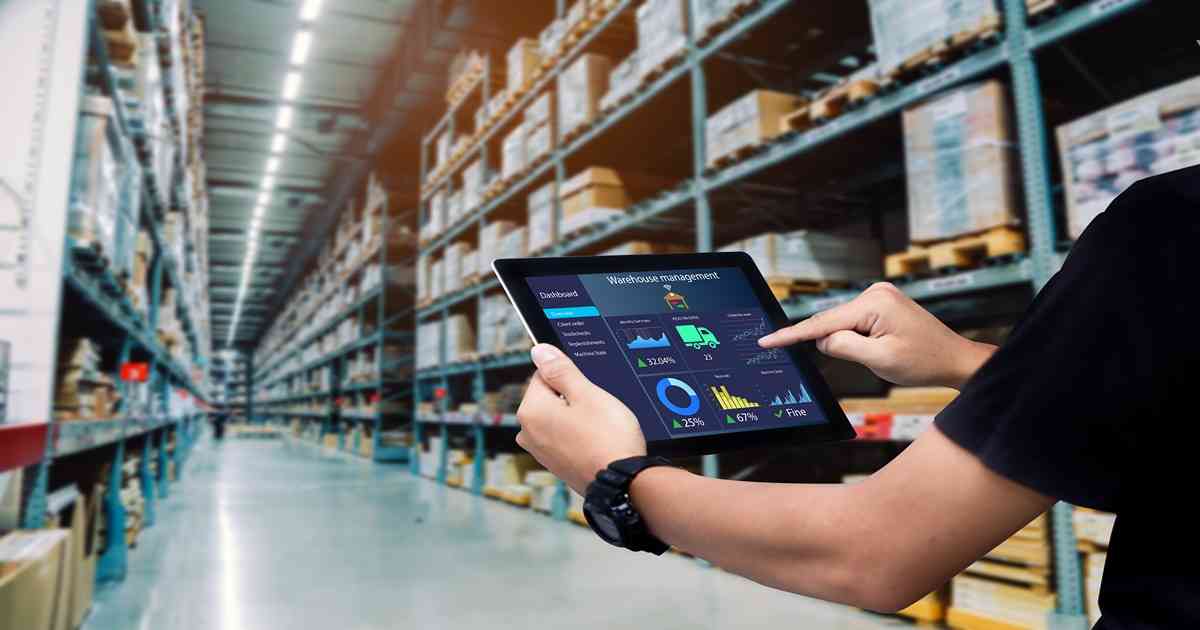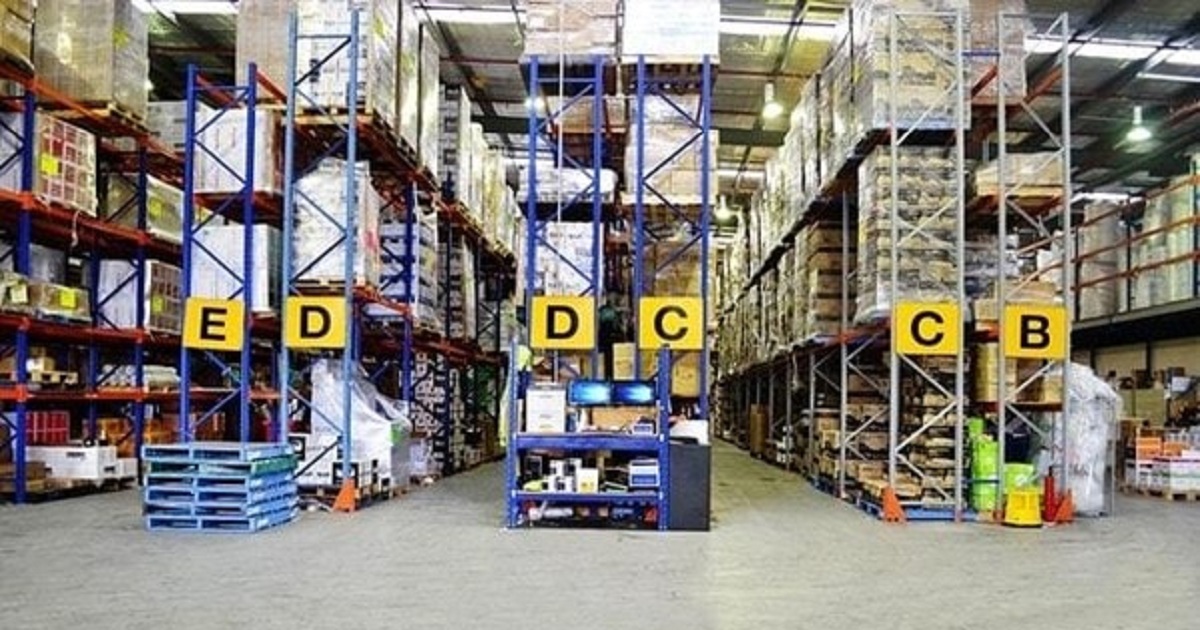
Warehousing and Distribution
Article | July 17, 2023
Over the past decade, transportation and logistics have witnessed an immense transformation, from using automotive vehicles to drones and paper tags to advanced geotags. Also, the introduction of novel technologies and incorporation of innovative solutions such as artificial intelligence and blockchain has further reshaped the sector.
How is Rising Complexity Triggering the Adoption of Novel Technologies?
Today's supply chain is, in a word, complex. It has so many complexities, from ever-rising consumer expectations and disruptive events to globalized sourcing and omnichannel demand, that it is now being compared to a modern-day Gordian knot. With complexity comes ambiguity, particularly in the transportation and logistics industry.
For instance, importers are expected to find cost-effective and efficient ways to transport goods from manufacturing facilities, which are frequently located halfway around the world, to distribution centers and then, ultimately, into the hands of consumers. In addition, e-commerce has further added to the complexity by introducing new channels into the jumble along with the introduction of same-day or next-day delivery standards with higher transparency and tracking features by leading players such as eBay, Walmart, and Amazon Here are a few prominent technologies assisting logistics companies to counter these complexities.
Data Analytics
Big data analytics aids in the more accurate and efficient planning of operational processes, services, and strategies, allowing businesses to align with emerging consumer needs.
Artificial Intelligence (AI) and Machine Learning
AI and Machine Learning have become the most sought-after tech in the transportation food chain. It assists businesses in enhancing operational functionality, boosting productivity and speed, designing optimal transit networks and routes, and improving safety through predictive risk calculation and elimination.
The Internet of Things (IoT)
With the rising need for transparency and tracking of shipped goods, IoT is garnering immense popularity across the transportation and logistics sector. It enables businesses to monitor and track their goods in real-time with the help of geo-tagging, RFID tags, and GPS, resulting in fewer delays in deliveries.
Read More

Supply Chain
Article | May 26, 2023
Leveraging technology and resources within a network is key to supply chain optimization. While supply chains are inherently complex, this complexity can lead to significant technological benefits.
Contents
1 Overview and Importance of Emerging Technologies in Optimizing Supply Chain
2 Advantages of Incorporating Emerging Technologies in Enhancing Optimization
2.1 Autonomous Delivery
2.2 Cognitive Automation
2.3 Blockchain-enabled Traceability
2.4 Predictive Maintenance
3 Key Challenges in Adopting Emerging Technologies
3.1 Cost and Budget Constraints
3.2 Skills Gap in Talent
3.3 Privacy and Data Security Concerns
4 Overcoming Challenges
4.1 Adopting Technologies for Managing Budget and Cost
4.2 Developing Talent Pipeline
4.3 Implementing a Zero Trust Security Model
5 Future Outlook
Supply chain optimization involves maximizing the utilization of technology and resources within a supply network. Although supply chains are inherently complex, this complexity can yield significant technological advantages, particularly when leveraging the combination of blockchain, artificial intelligence (AI), and Internet of Things (IoT) technologies.
1 Overview and Importance of Emerging Technologies in Optimizing Supply Chain
Emerging technologies have transformed the supply chain industry and revolutionized business operations. AI, IoT, blockchain, and robotics are getting prominence with the ability to streamline supply chain processes, reduce costs, increase efficiency, and ultimately boost customer satisfaction. Implementing these technologies can give businesses real-time supply chain visibility, reducing waste and enhancing inventory management. Understanding the potential benefits of these emerging digital supply chain technologies and how they can be implemented within the supply chain is essential for any business that intends to stay in a competitive and rapidly evolving market.
2 Advantages of Incorporating Emerging Technologies in Enhancing Optimization
Blending operations with emerging supply chain technologies can significantly improve the speed and accuracy of information flow, minimize manual intervention, and reduce lead times. Additionally, these technologies can provide enhanced visibility into supply chain operations, enable effective risk management, and facilitate proactive decision-making.
2.1 Autonomous Delivery
Incorporating autonomous delivery that comes with self-driving vehicles benefits businesses beyond faster delivery times, lowers costs and reduces human error. It offers increased safety, greater flexibility, and improved resource management. It benefits industries like e-commerce and logistics, where quick and efficient delivery is crucial.
2.2 Cognitive Automation
Businesses face significant challenges due to unpredictable fluctuations in supply and demand, which can strain their existing technology. To mitigate these risks, executives have increased their investments in risk management. Cognitive automation offers three key benefits in supply chain management: identifying challenges and opportunities, gathering demand signals, and utilizing data for decision-making. Cognitive automation makes balancing supply and demands more efficient and effective, allowing businesses to act faster.
2.3 Blockchain-enabled Traceability
Blockchain technology, a distributed ledger system, enables secure, transparent, and traceable record-keeping across a supply chain network. By providing a tamper-proof record of product movement and quality, blockchain technology can enable businesses to verify the authenticity and integrity of their products at each stage of the supply chain. In addition, blockchain technology allows businesses to quickly trace product origins and identify affected batches during recalls.
2.4 Predictive Maintenance
Predictive maintenance is a technology that uses machine learning algorithms and Internet of Things sensors to predict impending equipment failures. By analyzing equipment performance data, predictive analytics enables businesses to reduce equipment downtime, lower maintenance costs, and increase reliability. With predictive maintenance, businesses can transition from reactive to proactive maintenance, preventing equipment failures and extending equipment lifecycles.
3 3 Key Challenges in Adopting Emerging Technologies
3.1 Cost and Budget Constraints
The executives in the supply chain industry face a significant challenge when adopting emerging supply chain technologies due to the associated costs and budget constraints. While these smart supply chain technologies offer long-term benefits, the upfront investment can deter businesses. Businesses need to consider the total cost of ownership, including implementation, training, ongoing maintenance costs, and the potential return on investment.
3.2 Skills Gap in Talent
Incorporating emerging technologies and trends in supply chain operations management is a complex and costly investment that demands a highly skilled workforce to implement and operate such supply chain technologies successfully. A significant skills gap while adopting technology in the supply chain industry poses a challenge for businesses in finding and training competent personnel with technical, analytical, and business skills required to handle emerging technologies.
3.3 Privacy and Data Security Concerns
As supply chain operations adopt cutting-edge technologies, companies must address privacy and data security issues. The use of technology requires the collection and dissemination of sensitive data across multiple parties, which raises security and privacy concerns that can be exploited by cybercriminals or unauthorized personnel. Failure to adequately address these issues may result in reputational harm, legal and financial penalties, and a loss of customer confidence.
4 Overcoming the Challenges
4.1 Adopting Technologies for Managing Budget and Cost
To overcome the challenge of budget and cost constraints in adopting technology in the supply chain, businesses can leverage innovative tools, such as cost management software and advanced analytics tools, which can provide real-time visibility into cost drivers and enable better decision-making to optimize resource utilization. With the top three technologies in supply chain such as AI, IoT and blockchain, businesses can reduce costs, boost supply chain performance, and maintain market competitiveness. AI predicts demand, maximizes inventory and improves transportation; RPA automates manual tasks, reduces labor costs, and cloud computing provides a flexible and scalable IT infrastructure with reduced upfront investments.
4.2 Developing Talent Pipeline
Businesses must invest in building a talent pipeline to ensure a steady supply of skilled employees to narrow the skills gap in the supply chain industry. Collaboration with educational institutions, in-house training programs, and managed service providers from the technology industry can all be part of the answer. The organization's competitiveness and success can be increased by creating a talent pipeline to fill the skills gap between the current workforce and the needs of emerging technologies. Businesses can keep their workforce current and ready to adopt new technologies in supply chain by investing in a talent pipeline.
4.3 Implementing a Zero Trust Security Model
As businesses adopt emerging technologies for supply chain operations, privacy, and data security, concerns have become a formidable obstacle. The implementation of a zero-trust security model can aid in addressing this difficulty. Before gaining access to any data or system, all users and devices in this model must be authenticated as potential threats, per this model. This strategy protects data and systems from unauthorized access and enables businesses to comply with regulations such as the GDPR and CCPA. In addition, it can provide supply chain visibility and control over data access in real-time, making it more effortless to detect and respond to security threats.
5 Future Outlook
Supply chain leaders view emerging supply chain technology as a competitive advantage and as a means to address digital transformation. In addition, there is a focus on supply chain technologies that improve human decision-making and manage assets at the edge. Organizations should unify their technology portfolio and update legacy systems for greater efficiency. As supply chain complexity increases, we can expect even more advanced technology solutions leveraging big data, machine learning, and robotics to create agile, flexible, and sustainable supply chains.
Read More

Management
Article | June 21, 2023
Data volume in supply chains is usually enormous. Analytics applied to the supply chain help make sense of the pile of information by identifying patterns and drawing conclusions.
Contents
1 Importance of B2B Supply Chain Analytics
2 Obstacles in Supply Chain Analytics Integration
2.1 Barriers in Collecting and Processing Data
2.2 Insufficient Technical Skills
2.3 Issues in Managing and Integrating Data
2.4 Inadequate Analytics and Insights Generation
3 Addressing Supply Chain Analytics Complexities for Better Decision-Making
3.1 Leveraging External Expertise
3.2 Enhancing Collaboration and Communication
3.3 Improving Data Quality and Governance
3.4 Developing Analytics Capabilities
4 Power of Successful Supply Chain Analytics Integration in Transforming Businesses
5 Conclusion
1 Importance of B2B Supply Chain Analytics
Supply chain analytics has become a pillar of contemporary business strategy, enabling organizations to leverage data insights and enhance vital supply chain processes. By utilizing real-time data analytics, businesses can streamline their supply chain operations, boost productivity, and increase customer satisfaction. With unparalleled visibility into key performance indicators, B2B supply chain analytics provide the opportunity to identify inefficiencies, reduce costs, and react swiftly to ever-changing market dynamics, streamlining the process for supply chain business analysts who manage supply data.
Leveraging the power of supply chain analytics tools is important for the success of modern businesses in the age of data-driven decision making. With the ability to optimize inventory levels, manage lead times, and reduce transportation costs, supply chain data analytics provides a competitive advantage that can increase the efficiency, productivity, and profitability of businesses of all sizes and in all industries.
2 Obstacles in Supply Chain Analytics Integration
Supply chain analytics integration has become increasingly critical for companies seeking to optimize their supply chain operations. However, several obstacles hindering successful implementation often complicate the integration process; hence, understanding and knowing them in advance is vital for smooth operations.
2.1 Barriers in Collecting and Processing Data
Effective data collection and processing are critical in generating accurate insights to drive supply chain analytics decision-making. However, it comes with challenges; the most critical obstacle is data silos, where data is stored in isolated systems or departments, leading to difficulties in accessing and integrating it. It gets more complex when different departments or partners use varied data formats or standards. Additionally, cleaning and processing data is also challenging, as it involves identifying and eliminating duplicates, inconsistencies, and errors that can negatively impact analytics accuracy.
2.2 Insufficient Technical Skills
Successful supply chain analytics integration depends heavily on technical skills and knowledge. Insufficient technical talent and expertise are significant barriers to successful integration. The integration process requires specialized technical expertise and the supply of skilled professionals with expertise in ETL, statistical analysis, knowledge of ML, IoT, SQL, and more in managing supply chain analytics Talent lacking technical skills cannot accurately interpret data, leading to ineffective
decision-making. Preliminary data analysis, processing, and visualization due to a lack of technical expertise results in suboptimal decision-making, which can be costly for businesses.
2.3 Issues in Managing and Integrating Data
Data integration combines data from various sources and formats to create a unified view. However, businesses face data governance, quality, and standardization issues, resulting in incomplete or inconsistent data. Lack of accurate information reduces the efficiency of supply chain analytics and impacts decision-making. Additionally, data management is complex, and business face difficulties creating effective data management processes, resulting in problems related to storing, retrieving, and updating data.
2.4 Inadequate Analytics and Insights Generation
Obtaining valuable insights from enormous data collected during the supply chain process requires advanced analytics tools and technologies. Many businesses, however, continue to rely on traditional reporting methods, which limit the range and complexity of insights generated. The lack of expertise in data analysis and visualization can lead to poor interpretation and use of data, resulting in suboptimal decision-making. In addition, businesses experience difficulty identifying relevant data sources or may struggle to establish the necessary data governance frameworks to ensure data quality and accuracy.
3 Addressing Supply Chain Analytics Complexities for Better Decision-Making
Supply chain analytics can provide valuable insights, but the complexities involved in analyzing and interpreting data can be a significant hurdle. Learning the strategies for addressing these complexities to improve decision-making in supply chain management has become essential.
3.1 Leveraging External Expertise
Leveraging external expertise can be a powerful strategy for addressing supply chain analytics complexities related to collecting and processing supply chain data during integration. External experts bring specialized skills, experience, and knowledge that may not be available in-house, enabling organizations to overcome talent shortages and expand their capabilities. Furthermore, consultants, data scientists, or technology providers provide an objective viewpoint on the organization's data and processes, identifying areas for improvement and optimizing performance. By collaborating with external experts, organizations can access the latest tools, technologies, and best practices, ensuring that their supply chain analytics are up-to-date and relevant.
3.2 Enhancing Collaboration and Communication
Enhancing collaboration and communication can effectively address the challenge of insufficient technical skills in thriving supply chain analytics integration. By promoting cooperation and cross-functional communication, organizations can leverage the skills and expertise of team members from various departments to fill gaps in technical knowledge. This approach can also help to break down data silos and improve data sharing and integration. In addition, collaboration and communication can facilitate knowledge transfer, enabling team members to learn from one another and develop a more comprehensive understanding of the supply chain analytics process. Ultimately, this can lead to improved decision-making, as a more skilled and knowledgeable team can generate more accurate and insightful analytics.
3.3 Improving Data Quality and Governance
Businesses ensure accuracy, completion, and up-to-date data by establishing standardized processes and protocols for collecting, storing, and analyzing data. Data quality checks, including data cleansing and normalization, can help eliminate errors, redundancies, and inconsistencies that can negatively impact the accuracy and usefulness of analytics. In addition, effective data governance, including establishing data ownership, security, and privacy policies, helps ensure that data is managed and shared appropriately across the organization. As a result, it reduces the risk of data breaches, compliance violations, and other data-related issues, ensuring that organizations have access to reliable data for better decision-making.
3.4 Developing Analytics Capabilities
Developing capabilities significantly help organizations overcome inadequate analytics and insights generation challenges in analytics integration. Investing in advanced analytics tools and platforms like technical skills, data infrastructure, and advanced supply chain analytics techniques help businesses generate real-time, accurate, and actionable insights from collected data. Developing analytics capabilities requires creating a culture that values data and analytics, establishing robust data governance frameworks, upskilling the workforce and creating cross-functional teams collaborating on data-related projects. In addition, it helps businesses gain a competitive advantage.
4 Power of Successful Supply Chain Analytics Integration in Transforming Businesses
Effective supply chain analytics integration is revolutionizing business operations. Real-time and supply chain predictive analytics have helped businesses gain unmatched transparency in their supply chains, enhance critical processes, improve operational efficiency and customer satisfaction, and experience revenue growth and profitability. The ability to identify inefficiencies and supply chain optimization opportunities enables businesses to effectively allocate resources and reduce expenses. In addition, successful supply chain analytics integration enables businesses to respond quickly to changing market dynamics, optimize inventory management, and strengthen the resilience of their supply chains.
Businesses are leveraging the power of big data analytics to disrupt and transform supply chain at all levels. The concept of data, which was once a fundamental component of digital supply chain transformation, is now revolutionary. Therefore, it is essential to achieve advancements in supply chain analytics integration and management.
5 Conclusion
With technological and data analytics advancements, businesses can utilize real-time data insights to make data-driven decisions, optimize supply chain processes, and improve customer experiences. Integration of supply chain analytics is crucial for supply chain businesses of all sizes. Utilizing supply chain analytics software can further streamline integration as well as enhance data analytics and supply chain management.
Read More

Article | October 15, 2020
Labor costs, on an average, constitute more than 65% of the expenses for a warehouse. It is a best practice to review the operation of your warehouse before implementing automation, but it also has a significant impact on production and operational efficiency. The processes in a disarrayed warehouse cannot easily be automated as automation heavily relies on warehouse layout optimization, as well as standardized processes and procedures.
Read More